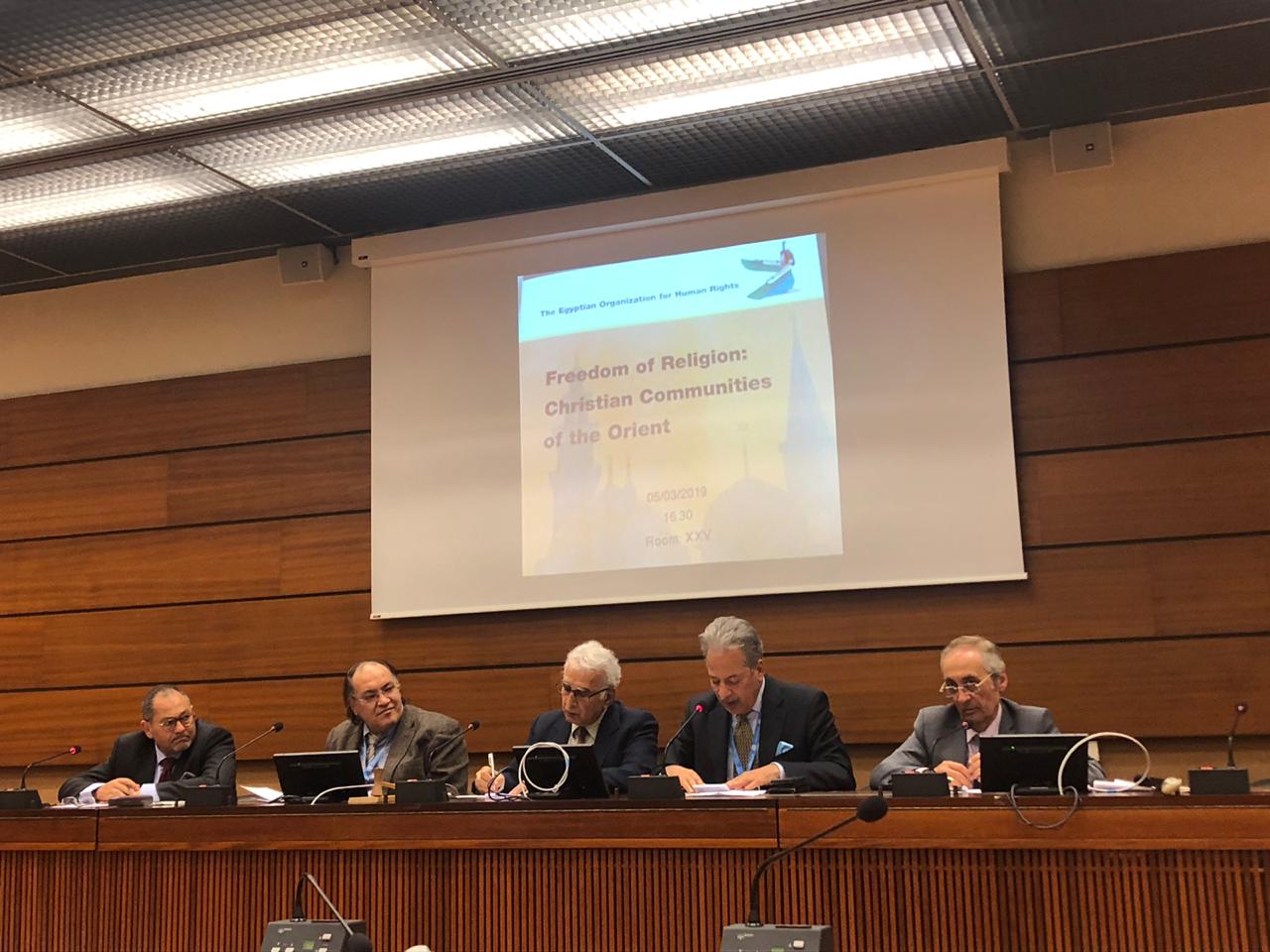CAIRO - 6 March 2019: The President of the Egyptian Organization for Human Rights (EOHR) discussed the impact of terrorism and extremist thoughts on the freedom of religion in the Middle East during his speech on Tuesday on the sidelines of the Human Rights Council 40th session in Geneva.
EOHR held a seminar entitled "Freedom of Religion: Christian Communities of the Orient" at the United Nations headquarters in Geneva. The seminar coincided with the presentation of the UN Special Rapporteur on freedom of belief of his report.
EOHR's Head Hafez Abu Saada mentioned during his speech the negative role played by the Muslim Brotherhood group and other terrorist organizations in targeting Christians' worship places and destroying over 60 churches.
He highlighted the efforts exerted by the Egyptian state and civil society organizations in rejecting extremism and encouraging the renewal of religious discourse.
Jean Maher, president of the Franco Egyptian Organization for Human Rights (OFEDH), condemned the international community's leniency in dealing with the spread of extremism and terrorism in the region. He also reviewed the difficulties faced by some Christian communities in the region.

In addition, Deputy Head of OFEDH Alexander Maher pointed out to the discriminatory practices that some Christians face in schools and police stations, and when applying for employment opportunities. He affirmed that the Egyptian state's leadership is keen to prevent the recurrence of such incidents.
The OFEDH's deputy head further called for reviewing the curricula of the institute of Al-Azhar, Egypt's top Sunni Muslim authority, as part of efforts to renounce extremism. He also praised the meeting between Al-Azhar Grand Imam Sheikh Ahmed al-Tayyeb with Pope Francis of Vatican in Abu Dhabi, highlighting messages of tolerance during their meeting.
Ambassador Ibrahim Salama, director of the Human Rights Treaties Division at the Office of the High Commissioner for Human Rights, highlighted the Beirut Declaration on "Faith for Rights," which Ahmed Shaheed, the UN Special rapporteur on freedom of religion or belief, referred to.
Salama said that such initiative focuses on correcting the individuals' thoughts and promoting religious toleration and acceptance of others.
He also called for abolishing the laws of defamation of religions and replacing them with a legislation that criminalizes spreading hatred in the name of religion.
Human rights are indivisible, Salama said, adding that freedom of expression must be protected in order for the right of the freedom of belief to be respected.
He affirmed that the right of food must be provided in order for the right of education to be enhanced, adding that enhancing the right of education is required to protect the right of freedom of expression.
Essam Shiha, secretary general of EOHR, said the June 30 revolution that Egypt witnessed in 2013,has proved that the vast majority of Egyptians do renounce sectarianism and terrorism. He condemned the ideas of hatred disseminated by some Salafist figures in Egypt, saying that most of the Egyptian people reject these ideas.
Abu Saada and Shiha said that EOHR adopts the"Faith for Rights" initiative, affirming its importance to counter extremism and terrorism and to promote the principles of human rights in Egypt and the region.
Comments
Leave a Comment